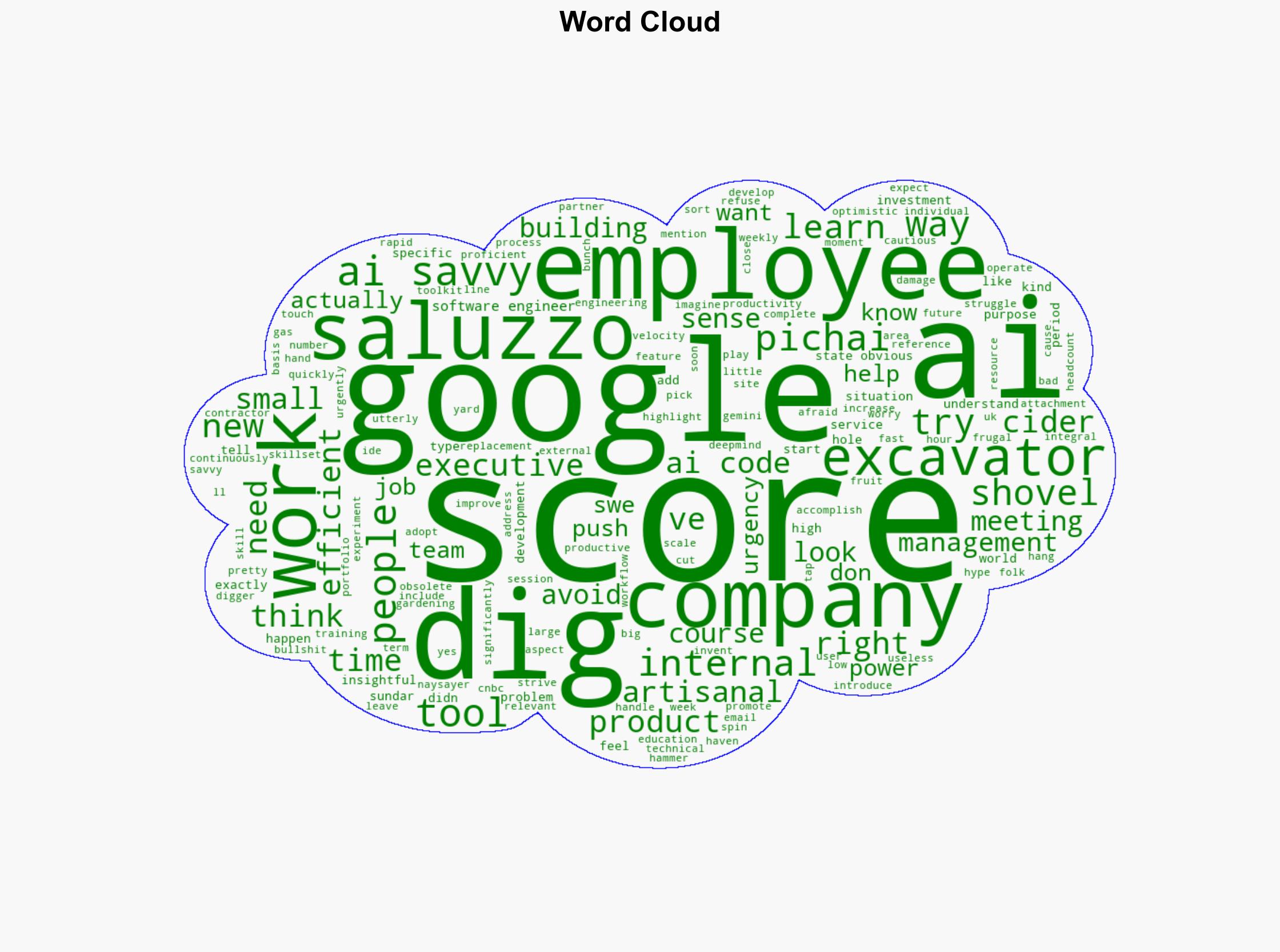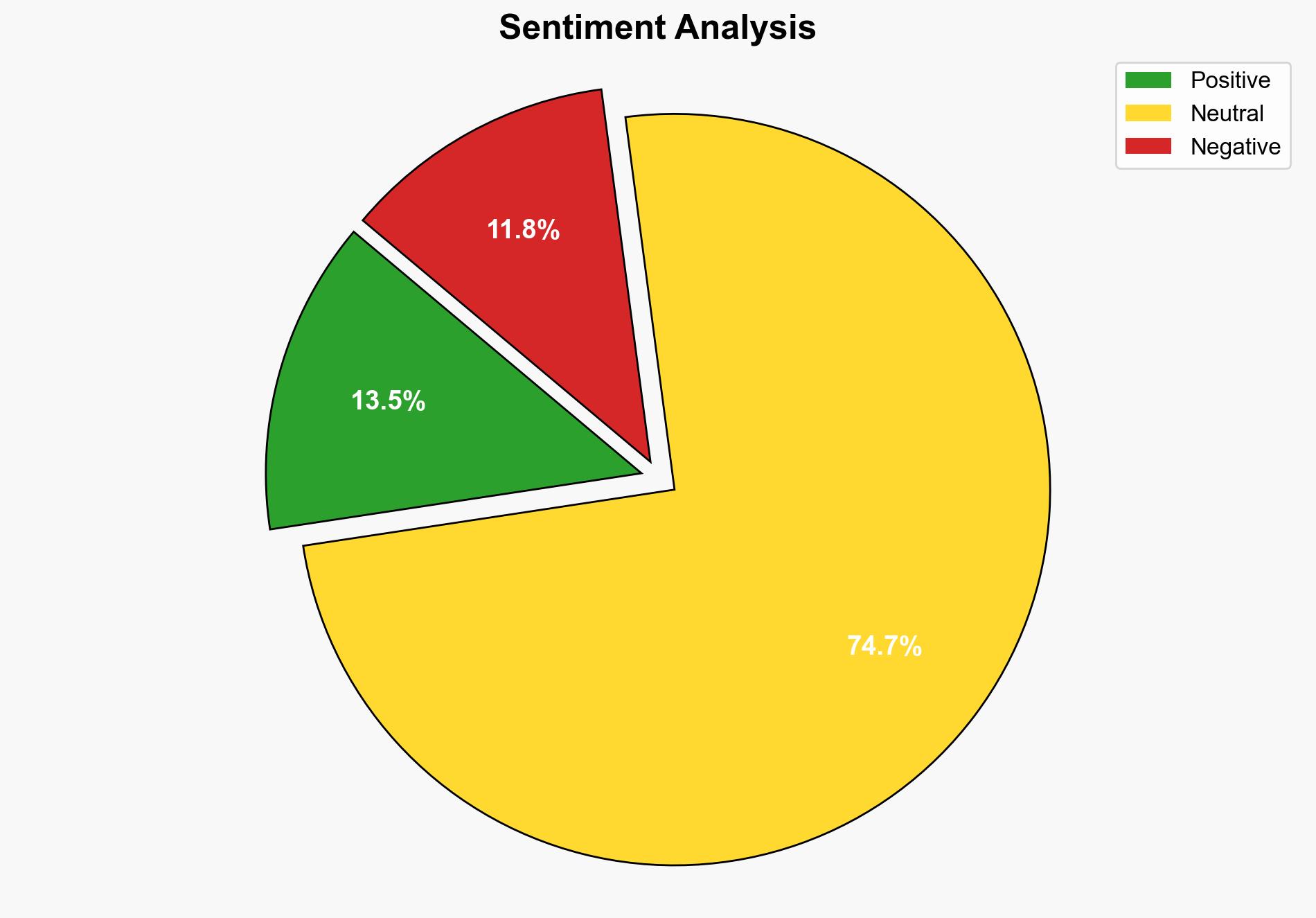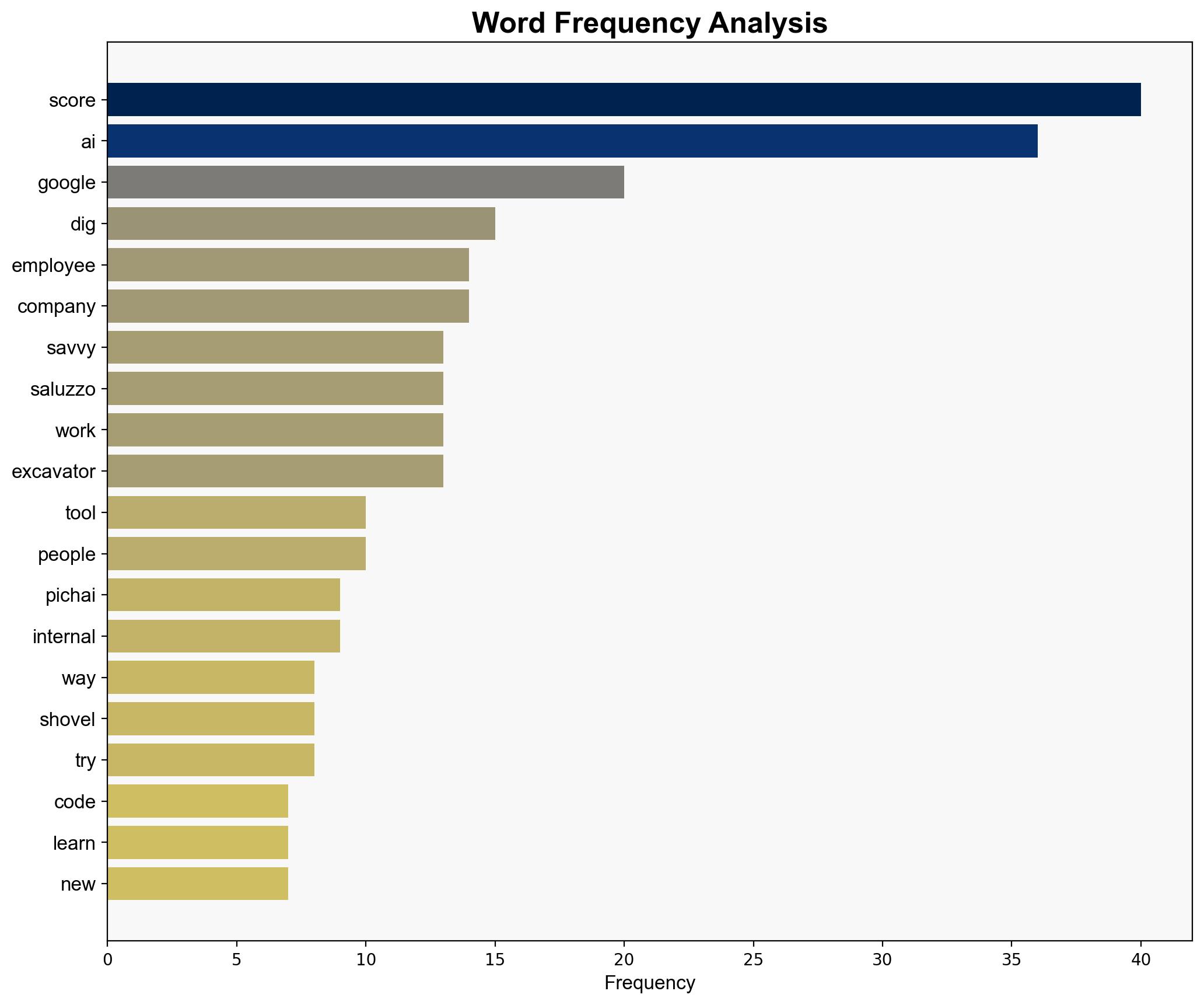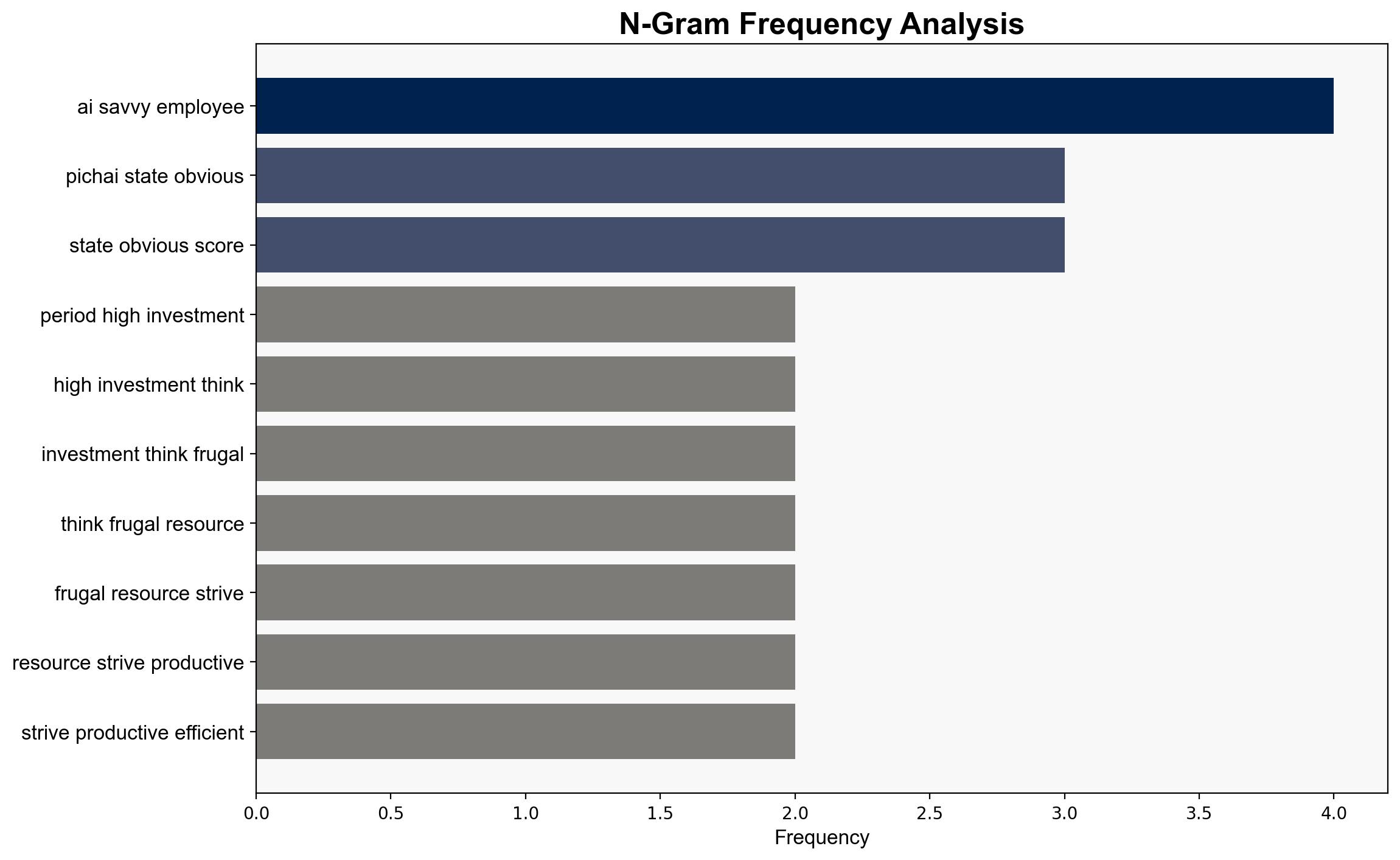Google Execs Say Employees Have To ‘Be More AI-Savvy’ – Slashdot.org
Published on: 2025-07-30
Intelligence Report: Google Execs Say Employees Have To ‘Be More AI-Savvy’ – Slashdot.org
1. BLUF (Bottom Line Up Front)
Google’s strategic emphasis on AI proficiency among employees is likely a response to competitive pressures and cost management needs. The most supported hypothesis suggests this initiative is primarily driven by the necessity to maintain a competitive edge in AI development. Confidence level: Moderate. Recommended action: Monitor Google’s AI initiatives and workforce adaptation strategies for potential industry-wide impacts.
2. Competing Hypotheses
1. **Competitive Edge Hypothesis**: Google is pushing for AI-savvy employees to maintain its competitive position in the rapidly evolving AI landscape. This is supported by the urgency expressed by executives and the development of internal AI tools and training programs.
2. **Cost Management Hypothesis**: The initiative is primarily a cost-cutting measure, aiming to increase productivity and efficiency by leveraging AI tools, thus reducing the need for additional headcount. This is indicated by the emphasis on frugality and resource efficiency.
Using ACH 2.0, the Competitive Edge Hypothesis is better supported due to the alignment of Google’s strategic goals with the development of AI tools and training programs, which are less directly related to immediate cost savings.
3. Key Assumptions and Red Flags
– **Assumptions**: It is assumed that AI proficiency directly correlates with competitive advantage and cost efficiency. Another assumption is that employees can rapidly adapt to new AI tools.
– **Red Flags**: Lack of specific metrics for success in AI proficiency and potential overestimation of AI’s immediate impact on productivity. Additionally, the absence of detailed information on how these changes will affect employee roles and job security.
4. Implications and Strategic Risks
– **Economic**: Successful implementation could lead to a significant competitive advantage for Google, influencing market dynamics and potentially setting industry standards.
– **Cyber**: Increased reliance on AI tools may heighten cybersecurity risks, necessitating robust security measures.
– **Geopolitical**: As a leader in AI, Google’s strategies could influence global tech policies and international AI development norms.
– **Psychological**: Employee morale and job satisfaction could be impacted by the pressure to rapidly adapt to new technologies.
5. Recommendations and Outlook
- Monitor Google’s AI training and tool deployment for industry trends and best practices.
- Scenario-based projections:
- Best: Google successfully integrates AI, leading to increased market share and innovation leadership.
- Worst: Employee pushback and security vulnerabilities undermine AI initiatives.
- Most Likely: Gradual improvement in productivity with moderate competitive gains.
6. Key Individuals and Entities
– Sundar Pichai
– Brian Saluzzo
7. Thematic Tags
artificial intelligence, corporate strategy, workforce development, technology innovation





